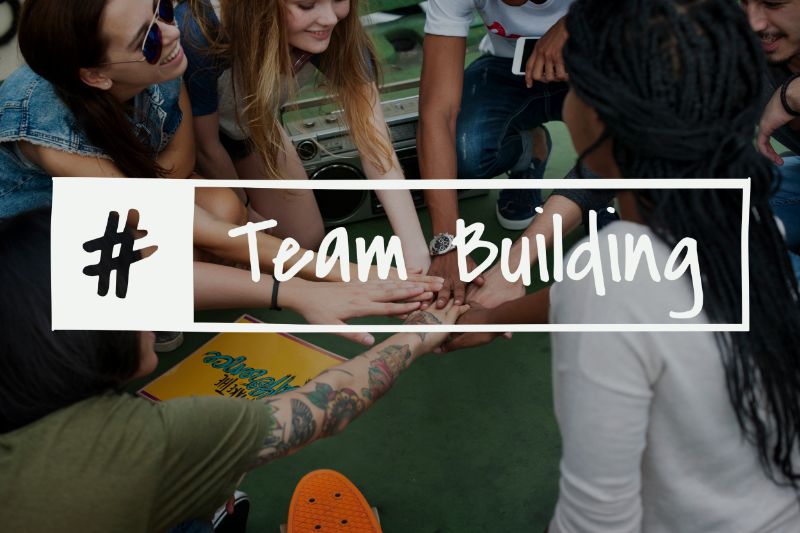Team building plays a crucial role in improving teamwork, communication, and productivity within a group. It facilitates a collaborative environment that enhances organizational performance. Effective communication and collaboration are promoted among team members through team building activities. It helps in establishing a team culture focused on shared goals, which in turn enhances cohesion.
Additionally, team building activities strengthen interpersonal relationships, leading to increased productivity. By promoting trust, respect, and conflict resolution, team building contributes to creating a harmonious work atmosphere.
To explore more about the benefits and strategies associated with successful team building, further insights on skills, personality tests, and cost considerations can be valuable.
Why Do We Need Team Building
Team building is essential for promoting effective communication, collaboration, and creativity among team members. Engaging in team building activities contributes to the overall cohesion of the organization. These activities play a key role in establishing a team culture centered on achieving shared objectives. Through improved communication and positive relationships, team members can enhance their interpersonal connections, leading to greater productivity and efficiency.
Team communication is strengthened as employees collaborate towards common goals, fostering a sense of unity. Team building activities foster a supportive environment that encourages employee engagement and boosts morale. By fostering trust and respect among team members, team building helps in resolving conflicts and maintaining a harmonious work environment.
Embracing team building practices not only enhances team dynamics but also contributes to a positive work environment conducive to innovation and success.
What Are Team Building Skills
To promote the development of cohesive teams and cultivate a constructive work atmosphere, it’s essential to acquire team building skills. Skills such as effective communication, active listening, conflict resolution, and collaboration techniques are fundamental in establishing a harmonious and efficient team dynamic.
Effective communication plays a key role in ensuring that information is transmitted clearly among team members, reducing the likelihood of misunderstandings and enhancing overall teamwork. Active listening fosters understanding and empathy within the team, fostering stronger relationships and mutual respect.
Conflict resolution skills enable teams to address disagreements in a constructive manner, transforming potential conflicts into opportunities for growth and cooperation. Encouraging the use of collaboration techniques motivates team members to collaborate towards shared objectives, leveraging individual strengths for the collective benefit of the team.
How To Use Personality Tests In Team Building
Personality tests can be strategically used to identify individual strengths and weaknesses within a team, facilitating a deeper understanding among team members and improving collaboration. These tests offer valuable insights into the unique characteristics of each team member, enabling teams to leverage this self-awareness for better communication and more harmonious work dynamics.
Recognizing the diverse personalities within a team allows for the formation of strategic teams where members complement each other’s skills, leading to increased cohesion. By showcasing how different personalities can effectively collaborate, these tests promote teamwork and enhance overall team performance.
Embracing personality tests in team building not only boosts self-awareness but also fosters open communication and appreciation for diverse skill sets. Ultimately, incorporating personality assessments can help in creating well-balanced and dynamic teams capable of efficiently achieving collective goals.
How Much Do Team Building Events Cost
The cost of team building events can vary significantly depending on the type of activities chosen. Virtual team building events are generally more cost-effective, with prices starting as low as $10 per person for online activities. In-person team building events tend to be pricier due to additional expenses such as venue rental, catering, and transportation.
For more customized experiences with professional facilitators, the cost can range from $500 to $5000 for a half-day session. Companies seeking cost savings may consider package deals that offer multiple activities or a series of sessions at a discounted rate.
It is important for companies to consider their budget constraints when planning team building events and to evaluate the benefits of different options to ensure that the chosen activities align with their goals while remaining financially feasible.
Conclusion
In conclusion, team building is essential for fostering collaboration, communication, and trust among team members. By developing team building skills and utilizing personality tests, organizations can create a more cohesive and productive work environment.
While team building events can vary in cost, the benefits of investing in team building far outweigh the expense. Ultimately, team building is a valuable tool for improving team dynamics and achieving success in the workplace.
Check out more articles:
